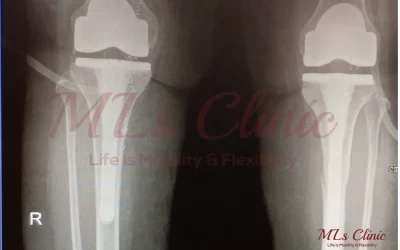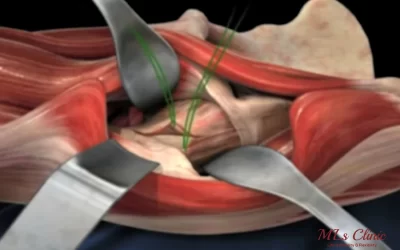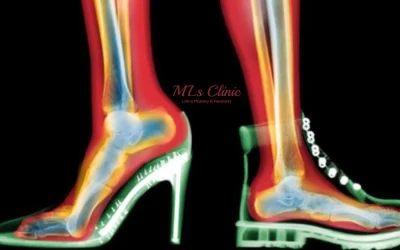Prevent Osteoporosis: Know the Easy Steps To Boost Bone Health

What is Osteoporosis?
Osteoporosis means “bones with holes.” It happens when bones lose minerals like calcium faster than they can be replaced, making them less dense, weaker, and more likely to break.
replaced, making them less dense, weaker, and more likely to break.
Most people don’t know they have osteoporosis until they get a fracture. Many risk factors can affect bone health, so it’s important to check for them. Early diagnosis and treatment can help prevent fractures, as there are usually no symptoms.
If you have osteoporosis, medical treatment can stop further bone loss and lower your risk of fractures. Lifestyle changes can also help keep your bones healthy.
Osteoporosis and Bone Growth
Bone is always being broken down and rebuilt. Like muscle, it needs enough calcium and exercise to stay strong.
In childhood and adolescence, more bone is created than broken down, leading to bone growth. By the late teens, bone growth is complete, and peak bone mass is reached around 25 to 30 years old.
Sex hormones like estrogen and testosterone are crucial for maintaining bone strength in both men and women. During menopause, the drop in estrogen causes rapid bone loss. In the first five years after menopause, a woman can lose up to 10% of her total bone mass.
Risk Factors for Osteoporosis
There are several risk factors for osteoporosis, some of which cannot be changed, such as being female and having a close relative with osteoporotic fractures.
Other risk factors include:
- Not getting enough dietary calcium
- Low vitamin D levels
- Smoking or drinking more than two alcoholic drinks per day
- Lack of physical activity
- Early menopause (before age 45)
- Missing menstrual periods due to low estrogen levels
Certain conditions and medications can also increase the risk of osteoporosis, including:
- Early menopause or low testosterone levels
- Thyroid disease or an overactive thyroid gland
- Rheumatoid arthritis
- Chronic liver and kidney disease
- Conditions that affect nutrient absorption, like Crohn’s disease, celiac disease, and other inflammatory bowel conditions
- Long-term use of corticosteroids for conditions like rheumatoid arthritis and asthma
- Specific treatments for prostate and breast cancer
What Can One Do to Keep My Bones Healthy?
You can take simple steps to prevent or slow bone loss:
- Get Enough Calcium:
-
- Adults (19-50 years) and men (51-70 years): 1,000 mg daily

- Women (51+ years) and men (71+ years): 1,200 mg daily
- Sources: Dairy products, almonds, broccoli, kale, canned salmon with bones, sardines, tofu
- Consider supplements if you don’t get enough calcium from food
- Adults (19-50 years) and men (51-70 years): 1,000 mg daily
- Get Enough Vitamin D:
-
- Adults (19-70 years): 600 IUs daily
- Adults (71+ years): 800 IUs daily
- Sources: Oily fish (salmon, trout, whitefish, tuna), mushrooms, eggs, fortified foods (milk, cereals), sunlight
- Consider supplements if you’re concerned about vitamin D intake
- Stay Active:
-
- Activities that build muscle strength, balance, and coordination include tai chi, Pilates, and gentle yoga.
- Do weight-bearing exercises like walking, jogging, netball or dancing. and climbing stairs to strengthen bones and slow bone loss.
- Non-weight-bearing exercises like swimming and cycling are great for overall health, but they don’t help with bone growth.
- Avoid Substance Abuse:
-
- Don’t smoke.
- Limit alcohol: Women should have no more than one drink per day; men should have no more than two drinks per day.
- limit caffeinated drinks
- Consume Enough Protein
Getting enough protein is crucial for healthy bones, as about 50% of bone is made of protein.
Studies show that not getting enough protein can reduce calcium absorption and affect how bones form and break down. However, there are concerns that very high-protein diets might cause calcium to be pulled from bones to balance the increased acidity in the blood.
A low protein intake can lead to bone loss, but a higher protein intake can help protect bone health, especially as you age or lose weight.
In a one-year study, women who ate 86 grams of protein daily while on a calorie-restricted diet lost less bone mass in their arms, spine, hips, and legs compared to women who ate only 60 grams of protein per day.
- Avoid Very Low-Calorie Diets
-
- Eating very few calories is not a good idea. It can slow down your metabolism, make you feel very hungry, and cause muscle loss, all of which can harm your bone health.
- Diets that are too low in calories can reduce bone density, even if you do strength training exercises. To keep your bones healthy, eat a balanced diet with at least 1,200 calories a day.
Talk to Your Healthcare Provider
Ask your healthcare provider about your risk of osteoporosis and when you should have a bone density test. Dr. Preetesh Choudhary recommends a bone mineral density (DXA) scan for:
- Women 65 years and older
- Postmenopausal women under 65 with risk factors
- Men 70 years and older
- Men under 70 with risk factors
- Adults with a fragility fracture
- Adults with conditions, diseases, or medications that cause low bone density or bone loss
“Our bones are the base of the body, and it should be strong”, says Dr. Preetesh Choudhary, the Best Orthopedic surgeon in Indore at MLs Clinic. “Everyone must take care of bones, and they will care of us.”







